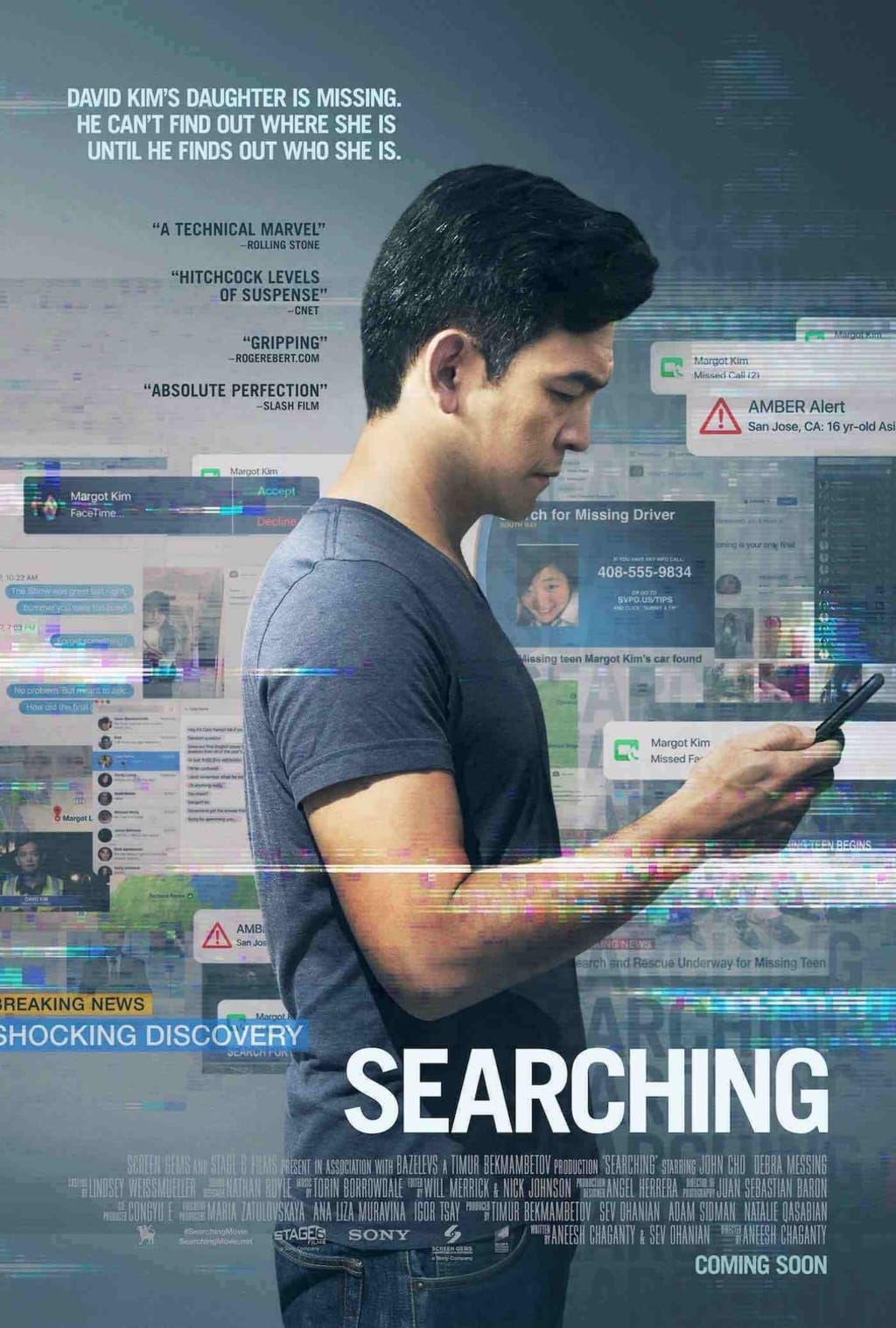
In this day and age of the internet and social media, the movie industry has been struggling to find a means of connecting to younger generations of moviegoers, and yet, these youngsters only end up looking at their cell phones and talking like they are in their living room (there’s a special place in hell for these people). The found footage boom happened after the success of Paranormal Activity, no doubt designed to emulate the look and feel of a YouTube video. Then there was Unfriended, a horror movie that took place entirely through a Facebook Live chat. And of course, there’s Black Mirror, a Twilight Zone-inspired show that is a series of technophobic tales of terror, trying to warn us all about how “technology is of the Devil and will be the downfall of humanity!” It’s all gimmicks, if you ask me. But what about the independent and arthouse wing of the filmmaking business? What offerings do they have that might take the concepts of the digital age and apply them to storytelling? The answer is Searching.
Directed by newcomer Aneesh Chaganty, Searching is told entirely through text messages, video chats, YouTube clips, and webcam footage. John Cho stars as David Kim, who is recovering from the loss of his wife to lymphoma, and now has to take care of his teenage daughter, Margot (played by Michelle La). The opening sequence tells us the story of the Kim family through home photographs and videos being shown on a computer screen, from Margot’s birth, to her mother’s death, all told to the sounds of classic dial-up modems and AOL instant messaging. In present day, David and Margot’s relationship comes across as a distant one, as the two are never shown on screen together; they communicate only through text messages and Facetime chats. One day, Margot doesn’t come home, doesn’t go to school, and hasn’t contacted anyone since attending a study group the night before. Being the worrisome father that he is, David goes searching (hence the movie’s title) through Margot’s computer, social media, and the internet at large, for clues of what happened to her. As days pass by without finding Margot, David fears the worst—that he failed as a father who didn’t know his own daughter.
I can’t talk about this film without mentioning what a technical achievement it is. It was shot entirely through GoPros, drone helicopters, mini dv cameras, webcams, and even iPhones. Most scenes are of actors talking to their computer monitors, without someone on the other side to interact with. So in that aspect, I have a great respect for the filmmakers for what they were trying to accomplish. John Cho is excellent as David. While many of us know him as Harold from the “Harold and Kumar” franchise, he plays this fatherly role nicely. It’s actually jarring at times to see him with a wrinkled face and behaving in a melancholy manner, after years of playing more youthful, outgoing, college-aged characters. Debra Messing co-stars as Rosemary Vick, the detective assigned to Margot’s case. She plays the role just fine, but it’s Cho who goes through the emotional roller coaster as the movie progresses. Another standout performance is that of Joseph Lee as Peter Kim, David’s brother. Peter is the far more laidback of the Kim brothers, but when the story takes a dark turn, Lee really shines as an actor with range. I hope this movie results with him getting more work.
Going back to the technical aspect of the movie, I’m amazed that the characters’ thoughts and emotions can translate simply by having them type a sentence, only to delete it, or just placing the mouse cursor on the blank space and stopping to think about what they want to write. Not to mention all the feelings that are conveyed simply by showing pictures and videos of the Kim family throughout the years. Little details on the Facebook profiles of Margot’s classmates are fleshed out enough to get an understanding of what these people are like. There’s even some social commentary about internet fame, once Margot’s case becomes a media and news frenzy.
However, for all the good that Searching does, it falls short in a few areas. As mentioned before, Cho and Lee give the best performances, but Messing’s performance is a little too understated. The narrative can be confusing for some, once the characters are no longer in front of their computers or cell phone. These scenes are shown through news broadcasts and YouTube videos. The problem with these scenes are that most of the story is told through David’s computer or cell phone, so we get the impression that we’re just looking at his computer screen and all his Apple products are linked, which is why we can also see him through his phone. But once TV news reports are playing it doesn’t make sense, because these reports aren’t being shown on a computer or phone, so it breaks the illusion to a degree. Likewise, why would David be watching a news report that he was a part of? He would already know what was being reported. It only serves to provide information to the audience. In my opinion, it would make more sense if these scenes were shown via cell phone footage of someone on the search team. And from a storytelling aspect, the third act gets too predictable once the plot comes to a false finish, only to restart itself. Lastly, I was confused about the passage of time as the story unfolded. I swore the movie started in mid-March and ended in early April, but then the movie tells us only a week has gone by. Maybe I missed something, or it’s a legitimate error with the movie.
Overall, I loved both the storytelling and technical formatting of the movie, which is why I’m giving Searching a well deserved four out of five stars. If you’re a fan of John Cho, this is one of his best performances. The “told from the point of view of a computer screen” gimmick might turn off (no pun intended) some viewers, but I think it works most of the time, again, until it’s TV news footage, rather than online video. So go right ahead with renting it on physical disk or through on demand or streaming services. That concludes this fanpicked review. And remember, when it comes to the media that you consume, be like Indiana Jones, and chose wisely.
Short Version
Pros:
- Great performances from John Cho and Joseph Lee.
- Conveys a lot of emotion without anything being said.
- Doesn’t come across as too gimmicky as you might think it would.
Cons:
- Debra Messing’s performance could be a bit better.
- Narrative can be confusing in some areas, especially with the passage of time.
- Story becomes predictable in the third act.
Verdict: **** (4 out of 5 stars).
About the Creator
Fanpicked Media
Watcher and critic of movies, television, and streaming media. Helping you pick the media that's best for your consumption.






Comments
There are no comments for this story
Be the first to respond and start the conversation.